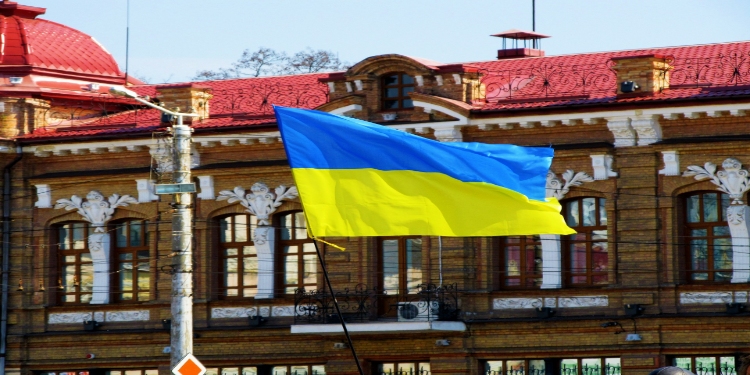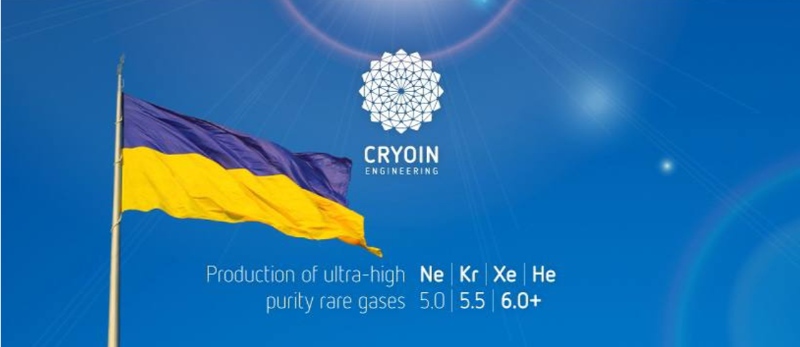
We’ve previously reported on Cryoin Engineering, a Ukrainian company that has found itself under a sustained corporate raid orchestrated by corrupt individuals who are undermining Ukraine. For the past three years, Cryoin Engineering, a producer of inert gases, has been fighting against rampant corruption, corporate raiding, and a criminal network embedded within state institutions.
Significant time has passed since the former military commissar, Yevhen Borysov, who had attempted to extort a $2 million bribe and a 60% stake in the company, was jailed. Yet, the pressure on Cryoin Engineering has only intensified. The company continues to face relentless attacks and escalating levels of harassment.
The accusations levelled against Cryoin Engineering have ranged from alleged ties to Russian businesses to manufacturing tank sights, missiles, and laser weaponry for Russia. In one particularly farcical turn, the company was even accused of tax evasion.
The entire situation has descended into the realm of the absurd, with all accusations proving to be utterly baseless and nonsensical. The fact remains that Cryoin Engineering deals in inert gases, predominantly helium, which cannot be used in weapon production and is commonly sold in toy shops for inflating balloons in countries like Germany.

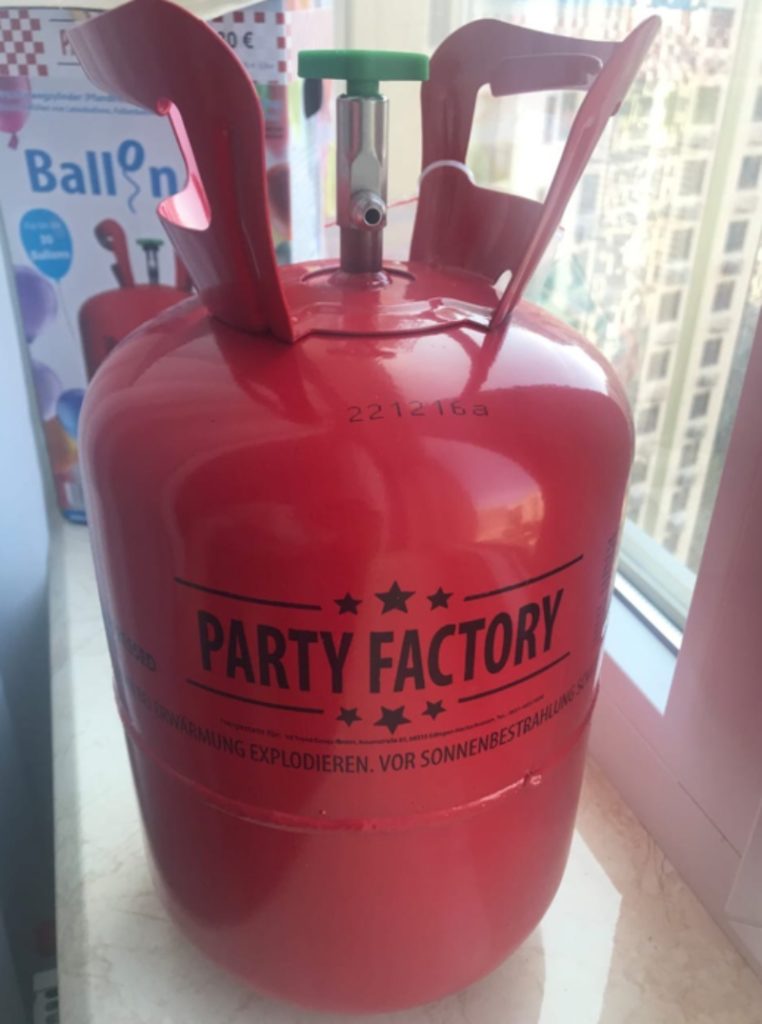
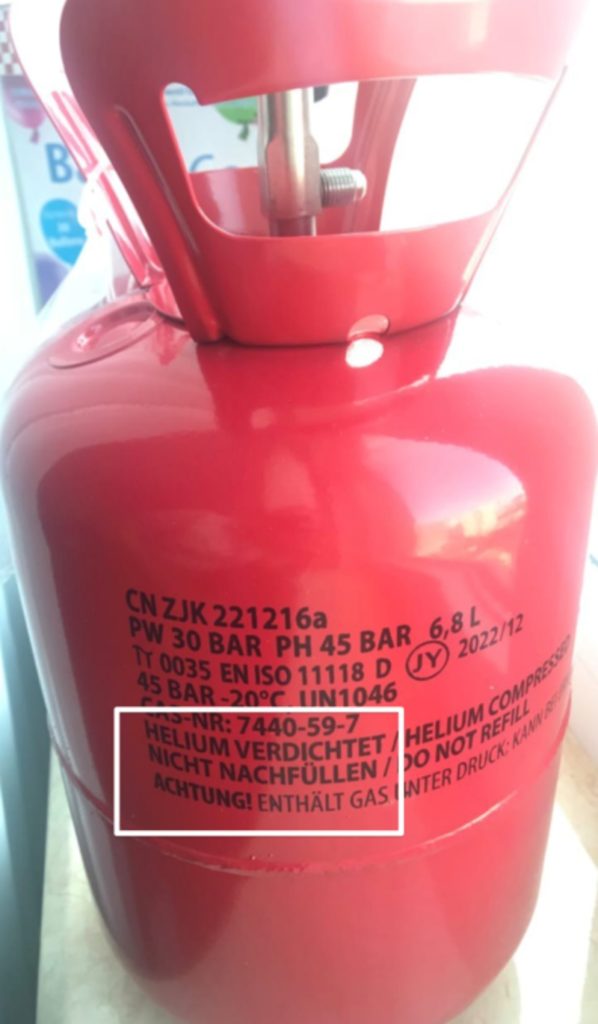
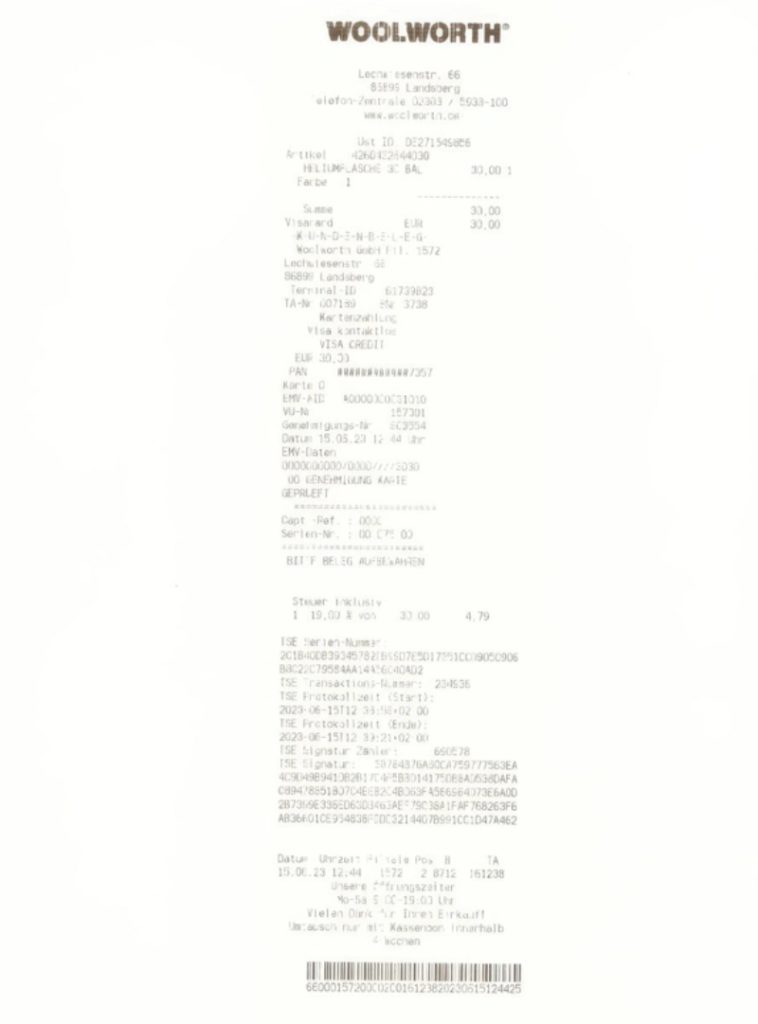
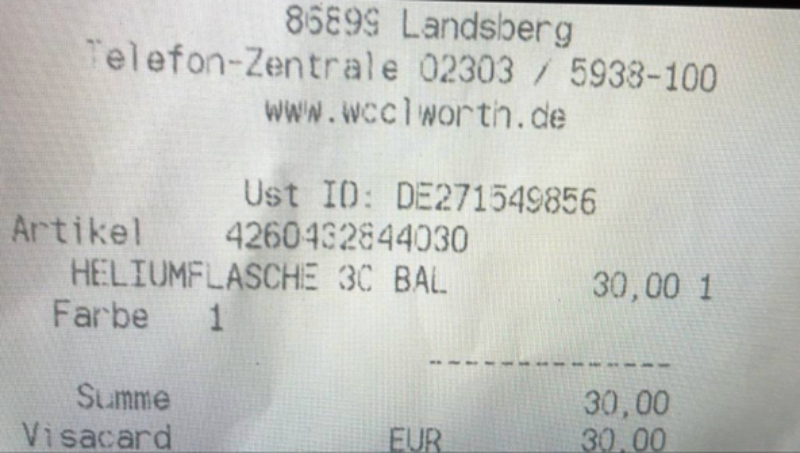
Photo: helium cylinder bought in a store
It all seemed to be part of a scheme aimed at exerting personal pressure through Ukraine’s Prosecutor General, Andriy Kostin, who recently resigned amid yet another corruption scandal. According to one of Kostin’s former aides, the objective was to transfer Cryoin Engineering’s assets to ARMA and subsequently into the hands of a company linked to the presidential administration.
The chilling factor is that the assistant prosecutor advised Cryoin Engineering not to file a lawsuit, hinting that the courts are currently under the control of the prosecutor’s office.
At present, the investigation has long exceeded the statutory time limits, yet the Prosecutor’s Office continues to withhold the case from the courts, given the complete lack of evidence implicating the company.
The Cryoin Engineering Case as a Barometer of Corruption in Ukraine

The Cryoin Engineering saga serves as a stark warning that corruption in Ukraine remains a serious issue, capable of undermining the stability of key economic sectors. The loss of one of the world’s largest neon gas producers harms not only Ukrainian industry but also disrupts the global electronics supply chain.
The case of Cryoin Engineering is just the tip of the iceberg. It is hard to fathom that around 30,000 companies have faced similar persecution, many unable to attract media attention to expose the chaos and plundering taking place.
The situation surrounding Cryoin Engineering also highlights the problem of using corrupt law enforcement for corporate raiding. Despite the lack of evidence linking the company to any criminal activity, the criminal cases remain open without being brought to court. This raises concerns that law enforcement is being exploited not to protect the legitimate interests of businesses, but rather to dismantle them.
Corruption in Ukraine is a systemic problem that has been eroding the economy, political stability, and public trust in state institutions for years. According to Transparency International, Ukraine consistently ranks near the bottom of global corruption indexes. Corruption pervades all aspects of society, from politics and business to healthcare and education.
The Cryoin Engineering case is not just a legal dispute, but a signal that meaningful reforms and genuine anti-corruption efforts are essential for Ukraine to safeguard its future.
Corruption will continue to thrive until justice systems can punish wrongdoing and keep governments in check. When justice is bought or politically interfered with, it is the people that suffer. Leaders should fully invest in and guarantee the independence of institutions that uphold the law and tackle corruption. It is time to end impunity for corruption.
Chair of Transparency International
Ukraine’s Economic Dependence on Allied Support
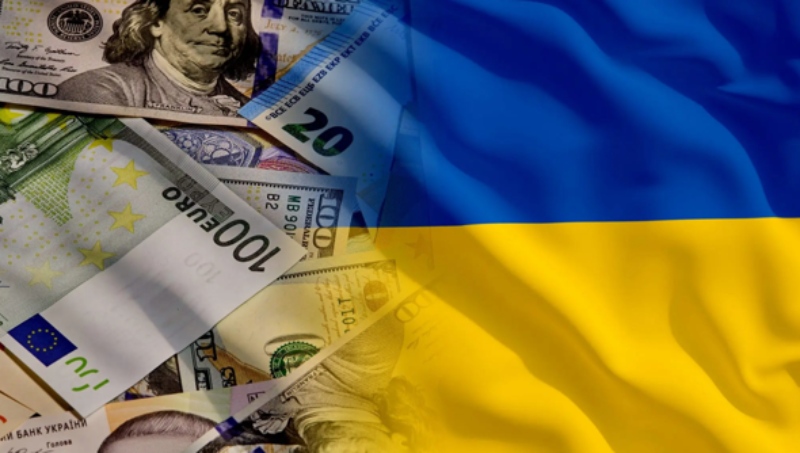
Ukraine’s economy is heavily reliant on Western financial aid, with over 70% of the national budget funded by international partners, and 87% of that assistance coming from the United States. Imagine, for a moment, if this support were suddenly cut off, the financial lifeline severed, and the flow of funds halted.
What would happen to a country whose economic state is already on life support, sustained by the oxygen of Western assistance?
Ukrainian leaders have become accustomed to ongoing support from the United States, the United Kingdom, Canada, Germany, and other allies, who provide substantial financial resources to keep the country afloat. There is an assumption that this support will continue indefinitely. As a result, there is insufficient focus on creating sustainable economic opportunities within the country. Meanwhile, corrupt officials continue to undermine businesses that form the remaining foundations of Ukraine’s fragmented economic structure.
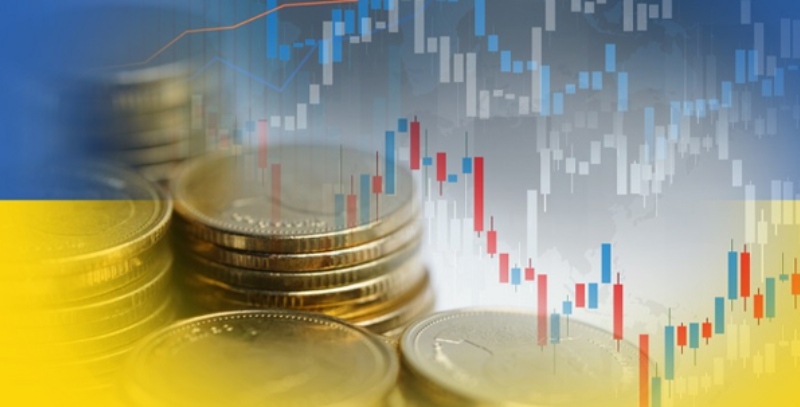
Inflation poses a severe threat to Ukraine, especially in the context of an unstable geopolitical landscape, and could further push the already fragile economy toward collapse. Spiralling inflation could spark social unrest and public discontent. A sharp depreciation of the hryvnia against the dollar would likely force the National Bank of Ukraine (NBU) to resort to printing more money, exacerbating the problem. The loss of support from the U.S. and other allies could quickly deplete the NBU’s reserves.
The risk of default also looms larger in such an unstable economic environment. Ukraine may struggle to meet its foreign debt obligations, potentially triggering a liquidity crisis. According to a report by the International Monetary Fund (IMF), Ukraine requires ongoing support to avoid default and maintain the stability of its financial system.
Ultimately, the country must recognise the urgency of developing a resilient, self-sustaining economy to reduce its dependence on external aid and better withstand future shocks.
Corruption and Asset Management in Ukraine
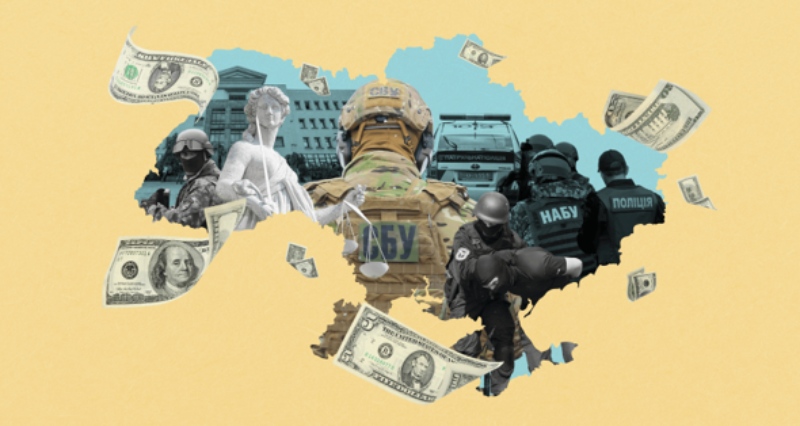
Amid economic instability, particular attention should be paid to the Asset Recovery and Management Agency (ARMA), which has faced mounting criticism in recent years due to corruption scandals and ineffective oversight.
Around 3.8 million jobs have been lost, and over 37,000 businesses have ceased operations, falling victim to raids and the actions of law enforcement. Many companies transferred to ARMA find themselves in limbo, with operations halted for indefinite periods. According to insiders, 90% of the enterprises handed over to ARMA have ended up in the hands of “Ukrainian hyenas” from raider groups. These groups are adept at quickly selling off valuable assets before abandoning the enterprises to looters.
Such practices are tearing the economic fabric of the country apart, casting doubt on the legitimacy of ARMA’s activities. The financial losses to the state, in terms of foregone tax revenue due to corrupt practices, are immense. This situation persists despite the daily sacrifices made by Ukrainians who are fighting for the country’s freedom and independence.
This raises a crucial question: What should be done, and who is to blame? While the temptation to point fingers is strong, it is the Ukrainian Prosecutor’s Office that appears more eager to target everyone except those truly deserving of scrutiny.
ARMA claims that 10% of the enterprises it has managed to hand over to other firms are functioning effectively and paying taxes. However, these payments only amount to 20% of the tax contributions made by the same companies before their assets were seized and placed under ARMA’s troubled administration.
The agency itself, conceived by former Interior Minister Arsen Avakov—known for his controversial reputation—faces questions about its legitimacy and effectiveness. How can a corrupt agency with multiple criminal cases pending against it be trusted to seize and manage assets? It is troubling that ARMA can transfer ownership of property without a completed judicial process, where a court verdict would establish guilt or innocence.
This situation represents a blatant violation of legal principles, infringing on the right to work (Article 43 of the Ukrainian Constitution) and private property (Article 41). It also undermines the presumption of innocence (Article 62), which is enshrined in the Constitution.
Consider the example of Cryoin Engineering. One of the assistants to the Prosecutor General, at the behest of a senior official from the Presidential Administration, allegedly used “telephone justice” to freeze the company’s bank accounts, stripping 210 people of their right to work during wartime and severely infringing on the Constitution. Employees lost their jobs and livelihoods.
In the nearly three years that the company has been idle, the state has missed out on 280 million UAH in potential revenue from this one enterprise alone.
Such cases illustrate the devastating economic impact of unchecked corruption and mismanagement, demonstrating the urgent need for reform to ensure fair asset management and the protection of business rights in Ukraine.
Amnesty, Amnesty, Amnesty
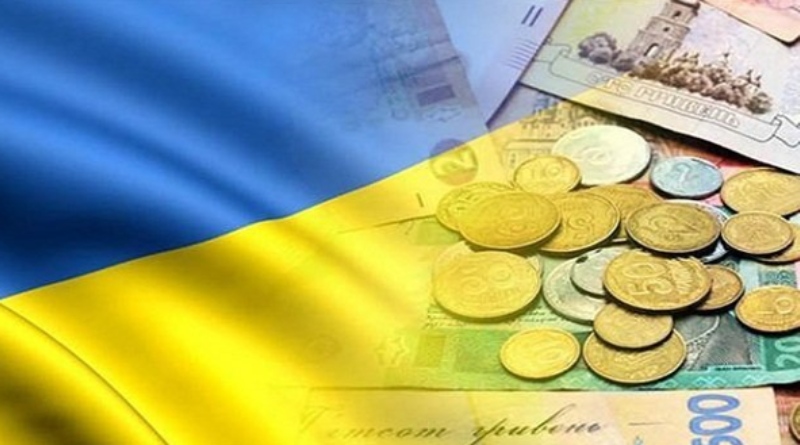
A logical solution for Ukraine would be to grant amnesty to tens of thousands of businesses that have suffered under ARMA’s actions. It is crucial to jumpstart the economy, create jobs, and significantly increase budget revenues by enabling companies to generate profits and pay reasonable taxes, rather than suffocating them with increased tax burdens. In the medium term, this could lead to a disastrous outcome, driving the economy further underground and reducing tax revenues.
The country needs a carrot, not a stick. By providing incentives rather than punishments, Ukrainians will be encouraged to stay, return to work, and contribute to the nation’s recovery, rather than contemplating ways to leave.
Social Consequences
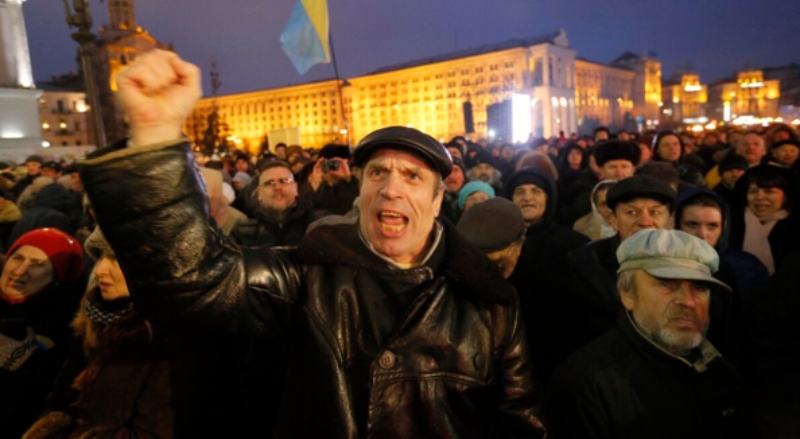
The decline in production caused by the mismanagement of assets is leading to a rise in unemployment. Over 6 million Ukrainians have already left the country in search of a better life abroad, and if the situation does not improve, this figure could climb to 8 million. The growing number of unemployed could fuel social tensions and increase the likelihood of public unrest.
Adding to the economic woes, there are 10.3 million pensioners who receive monthly pensions of just $70—an amount insufficient to cover basic utilities.
Against the backdrop of these economic challenges, there could soon be difficulties in paying the military. Should this happen, the country risks erupting in protests, potentially involving all segments of society.
The West Must Not Lose Ukraine

Corruption in Ukraine is a serious issue that demands urgent action. Amidst the war with Russia, corruption has emerged as a significant internal adversary, threatening to lead the country to defeat.
The collapse of Ukraine would be akin to the breaking of a dam that holds back the immense force of water. But in this case, Ukraine is holding back the onslaught of ruthless and relentless Russian aggression.
The international community must take an active role in reforming Ukraine’s governance system, focusing on increasing the transparency and accountability of state institutions.
We call on the United States, the United Kingdom, Canada, and the European Union to adopt a strong and proactive stance in countering the corrupt practices within Ukraine’s power structures. Only by working together can we ensure that Ukraine remains a bulwark against tyranny.
David Prior
David Prior is the editor of Today News, responsible for the overall editorial strategy. He is an NCTJ-qualified journalist with over 20 years’ experience, and is also editor of the award-winning hyperlocal news title Altrincham Today. His LinkedIn profile is here.






















































